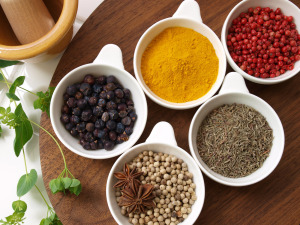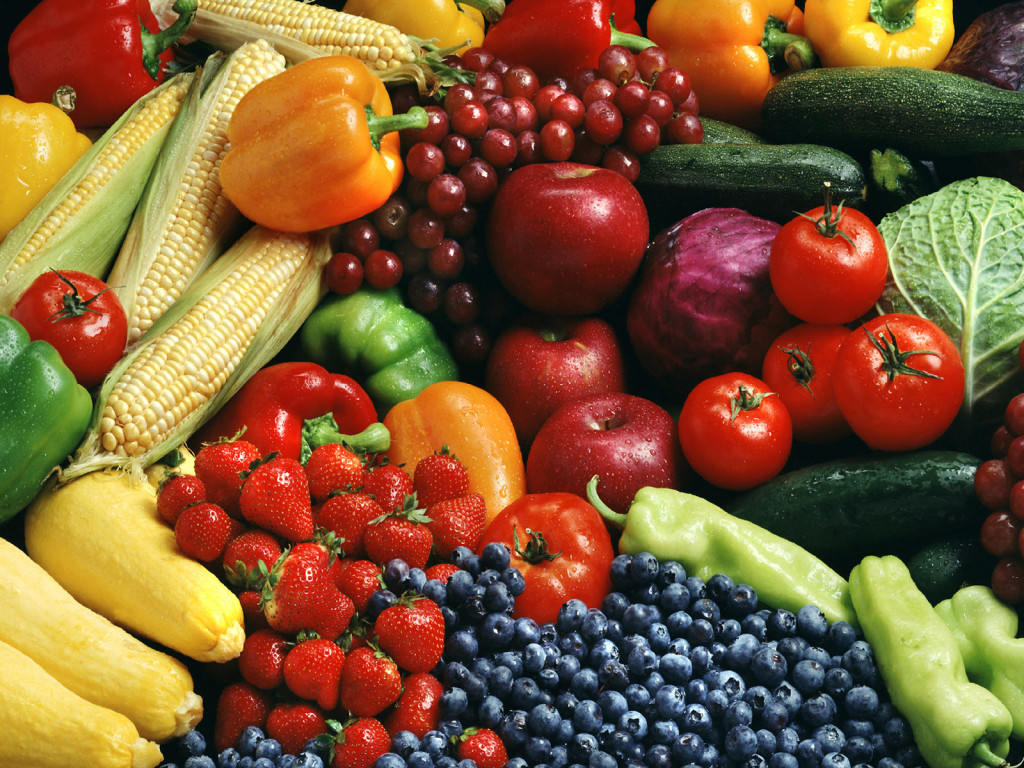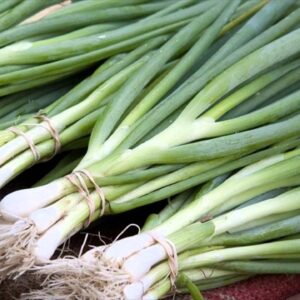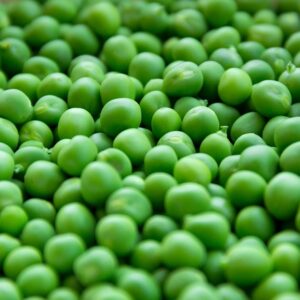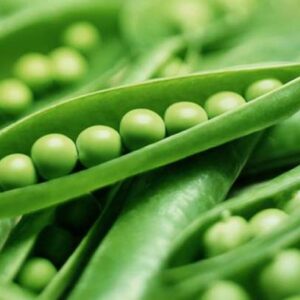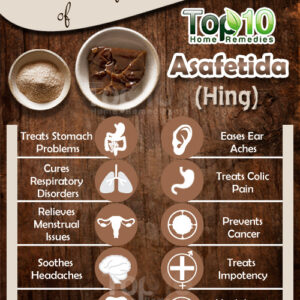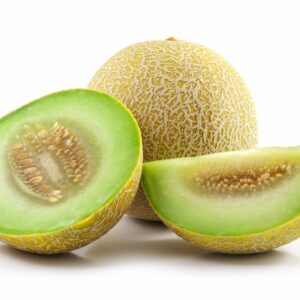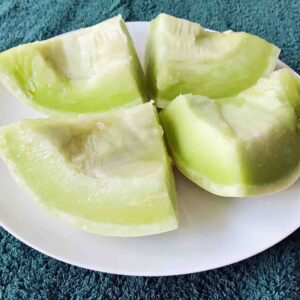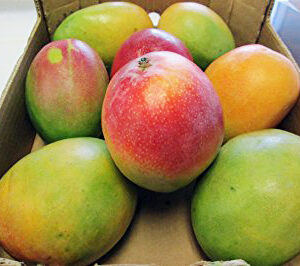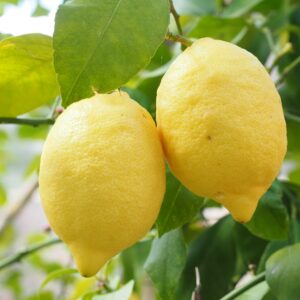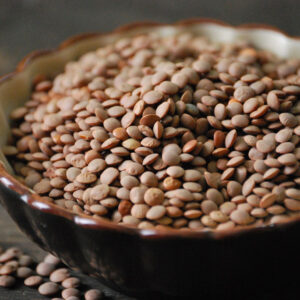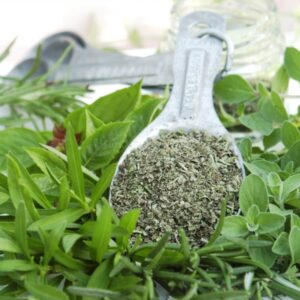Ingredients Nutrition Glossary
When we start using recipes, we may want to get some information about the ingredients we are using. This Glossary offers some of that information. Hover over the slightly highlighted Keywords to see an Image, a Description and a link to a related website for detailed information.
-
Green Onions
Scallion, commonly known as green onion, spring onion, or salad onion, is a small onion with long leaves that are considered a necessity in many recipes. The green onion's medicinal part is its stem. It works as well as an antipyretic, expectorant, anti-bacterial, and anti-fungal. It is effective against colds, headaches, chills to the stomach, indigestion, and also for insomnia. The white stem contains a lot of glucose and allyl sulfides. Use it is a raw condiment to many foods by finely chopping the fresh white stem.
Visit this Site for Nutrition Facts about Scallions. -
Green Peas
Many people think peas are just a poor man’s food or a cheap restaurant side-dish that puts ‘green’ on your plate.
Peas are really little powerhouses of nutrition that are a boon for your health and the whole planet. Here are some of the benefits : Weight Management, Stomach cancer prevention, Anti-aging, strong immune system, and high energy, Prevention of wrinkles, Alzheimer’s, arthritis, bronchitis, osteoporosis and candida, Blood sugar regulation, Heart disease prevention, Prevent constipation, Healthy bones, Reduces bad cholesterol and Healthy for the environment.
Visit this Site for Nutrition Facts about Green Peas.
-
Hing
Asafoetida (Hing) has amazing medicinal properties, especially good for reactions from allergies or insect stings. Someone had such a severe reaction and the face puffed up. When 3 or four small, raw Asafoetida pieces were inserted into small banana pieces and swallowed, it gradually reduced the puffiness and was cured in about 30 minutes. Given its numerous therapeutic and curative powers, this spice is also referred to as the ‘Food of the Gods’.
By itself, Asafoetida has a strong smell. But when cooked the smell disappears or adds a nice subtle flavor. It is an acquired taste, but worth it. It is called "Perungayam" in Tamil.
Visit this Site for Nutrition Facts about Hing/Asafoetida.
-
Honeydew Melon
Honeydew melon makes a refreshing treat on a hot summer day, but it’s also a low-calorie and healthy choice any time you need to feed a craving for sweets. Whether enjoyed fresh or added to a fruit salad, honeydew delivers iron, B vitamins and essential nutrients.
Visit this Site for Nutrition Facts about Honeydew Melon.
-
Large Mangoes
In addition to sumptuous tropical flavor, mangos deliver a host of nutrients and make healthy eating a delightful sensory experience. The Dietary Guidelines recommend that healthy adults consume 5 to 13 servings of fruits and vegetables every day (based on a daily consumption of 1,200 to 3,200 total calories). That’s where mangos come in! The versatile mango is available year round and adds delicious flavor to a balanced diet.
Visit this Site for Nutrition Facts about Mangoes.
-
Lemon~
The health benefits of lemon include treatment of throat infections, indigestion, constipation, dental problems, fever, internal bleeding, rheumatism, burns, obesity, respiratory disorders, cholera and high blood pressure, while it also benefits your hair and skin. Known for its therapeutic property since generations, lemons help to strengthen your immune system, cleanse your stomach, and it is considered a blood purifier. Lemon juice, especially, has several health benefits associated with it. It is well known as a useful treatment for kidney stones, reducing strokes and lowering body temperature. As a refreshing drink, lemonade helps you to stay calm and cool.
Visit this Site for Nutrition Facts about Lemons.
-
Lemons
The health benefits of lemon include treatment of throat infections, indigestion, constipation, dental problems, fever, internal bleeding, rheumatism, burns, obesity, respiratory disorders, cholera and high blood pressure, while it also benefits your hair and skin. Known for its therapeutic property since generations, lemons help to strengthen your immune system, cleanse your stomach, and it is considered a blood purifier. Lemon juice, especially, has several health benefits associated with it. It is well known as a useful treatment for kidney stones, reducing strokes and lowering body temperature. As a refreshing drink, lemonade helps you to stay calm and cool.
Visit this Site for Nutrition Facts about Lemons.
-
Lentils
Lentils are a high-protein, high-fiber member of the legume family. Like a mini version of a bean, lentils grow in pods and come in red, brown, black, and green varieties. They are relatively quick and easy to prepare compared with dried beans, and their low cost makes them an accessible form of high-quality protein for many people around the world. Lentils are an excellent source of molybdenum and folate. They are a very good source of dietary fiber, copper, phosphorus and manganese. Additionally they are a good source of iron, protein, vitamin B1, pantothenic acid, zinc, potassium and vitamin B6.
Visit this Site for Nutrition Facts about Lentils
-
Mangoes
Mangoes ~ In addition to sumptuous tropical flavor, mangos deliver a host of nutrients and make healthy eating a delightful sensory experience. The Dietary Guidelines for Americans recommend that healthy adults consume 5 to 13 servings of fruits and vegetables every day (based on a daily consumption of 1,200 to 3,200 total calories). That’s where mangos come in! The versatile mango is available year round and adds delicious flavor to a balanced diet.
Visit this Site for Nutrition Facts about mangoes
-
Marjoram
Marjoram has delicate sweet flavor, and subtle pungent taste. The herb composes many notable phytonutrients, minerals, and vitamins that are essential for optimum health and wellness. The herb parts contain certain chemical constituents that are known to work as anti-inflammatory and anti-bacterial properties. Fresh herb has high levels of vitamin-C, beta-carotene, vitamin-A, vitamin-K and other compounds that play a protective role in aging and various disease processes. Marjoram herb carries a good amount of minerals like iron, calcium, potassium, manganese, copper, zinc and magnesium. Furthermore, its dry leaves are an excellent source of iron.
Visit this Site for Nutrition Facts about Marjoram

